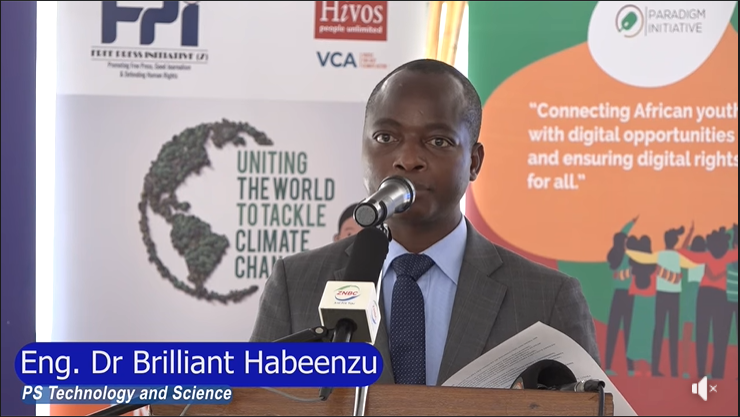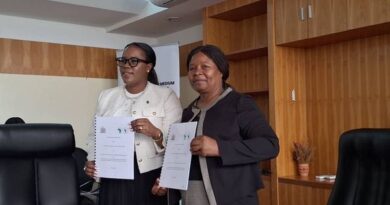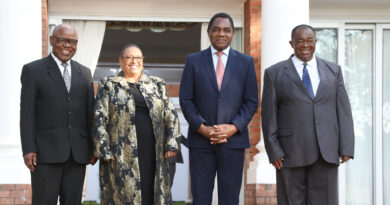Bridging Zambia’s Digital Divide: Advancing Freedom and Inclusion in the Digital Age
The Ministry of Technology and Science, in collaboration with Bloggers of Zambia, hosted the 2025 Lusaka Internet Meet-Up at M’Kango Golfview Hotel under the theme: “Advancing Zambia’s Digital Future: Bridging the Digital Divide While Fighting for Freedom.”
Eng. Dr Brilliant Habeenzu, Permanent Secretary of the Ministry, highlighted the continuity of the meet-ups as essential for navigating Zambia’s evolving digital landscape. Reflecting on last year’s forum themed “Leveraging Zambia’s Digital Transformation in the Age of Artificial Intelligence”, he noted the Government’s launch of the National Artificial Intelligence Strategy as a landmark achievement for responsible and inclusive technology adoption.
Dr Habeenzu praised the Bloggers of Zambia and partners for fostering an inclusive digital community, aligning with Government efforts to build a society where no one is left behind.
He emphasised that the annual forum provides a multi-stakeholder platform for shaping the nation’s digital agenda, creating opportunities in digital policy, fintech, cybersecurity, internet access, and emerging technologies.
“The digital divide remains a global challenge, with many still offline or lacking essential digital skills. Issues such as misinformation, algorithmic bias, and online exploitation continue to erode trust,” Dr Habeenzu said.
He stressed that Zambia faces challenges in access, affordability, and digital literacy, particularly for youth and entrepreneurs who require safe and reliable digital spaces to innovate and thrive.
Under President Hakainde Hichilema’s leadership, the Government is implementing the Digital Transformation Strategy, anchored on five key pillars: digital infrastructure, platforms, services, literacy, and innovation and entrepreneurship. To date, over 1,500 public institutions—including schools, clinics, and local authorities—are now connected to the Internet, transforming service delivery and citizen engagement.
Digital literacy has also seen steady growth, rising from 18.6% of the population in 2018 to over 23% today. The Government aims for at least 50% of adults to possess functional digital skills by 2030, empowering citizens to fully participate in the digital economy.
Dr Habeenzu emphasised that internet freedom is crucial for democratic participation and innovation. Legal frameworks, including the Cybersecurity and Cybercrimes Act and the Data Protection Act, safeguard digital rights and privacy, ensuring a secure and open online environment.
Highlighting the youth-driven digital economy, Dr Habeenzu noted that over 60% of Zambians are under 35, with the ICT sector contributing 1.8% to the nation’s 4% GDP growth in 2024. Government initiatives, including innovation hubs and digital skills programmes, aim to transform young people into creators, not just consumers, in the digital space.
Dr Habeenzu concluded: “Zambia’s digital transformation is not only about technology—it is about people, dignity, and opportunity. The true promise of digitalisation lies in agency, connection, and meaningful participation. Together, we can build a Digital Zambia where every citizen is empowered, every voice is heard, and every community thrives.”



